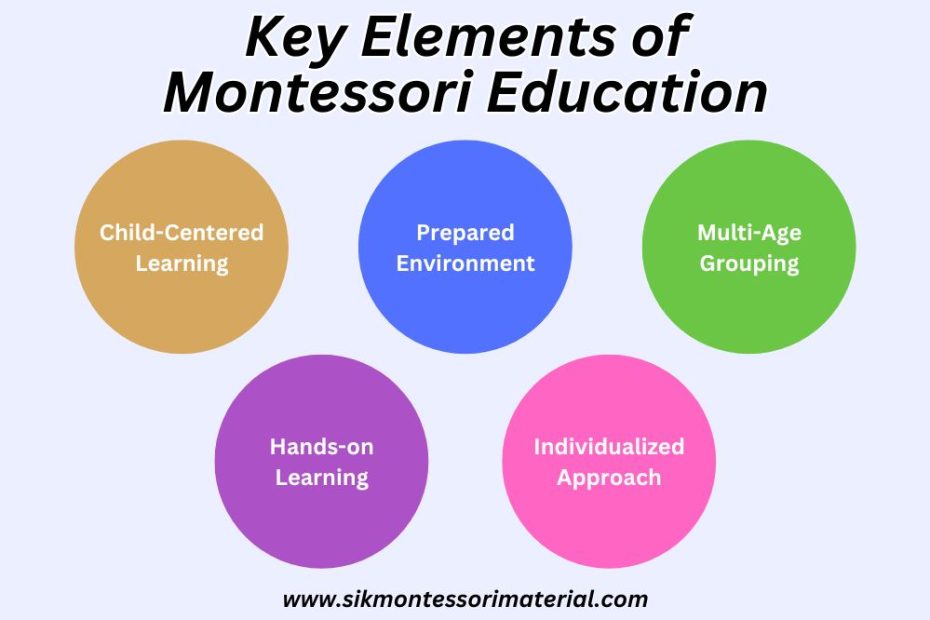Education is the foundation of any society, shaping how individuals think and connect with others. Kids, who are the future, deserve an education that fits their unique needs. One teaching method that’s proven itself over time is the Montessori approach. Developed by Maria Montessori, it prioritizes child-centered learning, hands-on experiences, and personalized education. In this blog, we’ll delve into the key aspects of Montessori education and why they’re crucial.
Child-Centered Learning:
The Montessori method starts with a simple belief: children are natural learners. Their curiosity and desire to discover are built-in. Here, educators don’t force knowledge onto children; they guide and support them. In Montessori classrooms, kids choose their activities and work at their own pace. This freedom fosters independence, creativity, and critical thinking – skills vital for success.
Prepared Environment:
Montessori classrooms are thoughtfully designed to promote learning, independence, and responsibility. All tools and materials are easily reachable, each with a specific educational purpose. Order and cleanliness are highly valued here, creating a calm and focused atmosphere, letting children concentrate on their tasks.
Multi-Age Grouping:
Montessori classrooms often mix kids of different ages. Younger children learn from older ones, who serve as role models and mentors. Older kids develop leadership skills and empathy by helping their younger peers. This mirrors real-life scenarios where people of different ages and abilities work together towards common goals.
Hands-on Learning:
Montessori education relies on hands-on materials that engage a child’s senses and facilitate learning. Each material is designed to teach a specific skill or concept, like hand-eye coordination or spatial awareness. These materials are self-correcting, enabling children to identify and correct their own mistakes, boosting self-confidence.
Individualized Approach:
Every child is viewed as an individual in a Montessori classroom, with distinct learning preferences, abilities, and shortcomings. The program is customized based on the interests and needs of each child. This enables kids to learn at their own pace by having them work on tasks appropriate to their developmental stage. This method guarantees that every child receives the assistance required to realize their full potential.
Conclusion:
Montessori education is more than just a teaching method; it’s a way of life that equips children with the knowledge, skills, and values they need in a fast-changing world. By combining child-centered learning, a prepared environment, multi-age grouping, hands-on learning, and an individualized approach, Montessori education produces creative, responsible, and confident learners ready to make a positive impact. If you want an education that encourages your child’s curiosity and nurtures their individuality, Montessori education might be the right choice for you.

